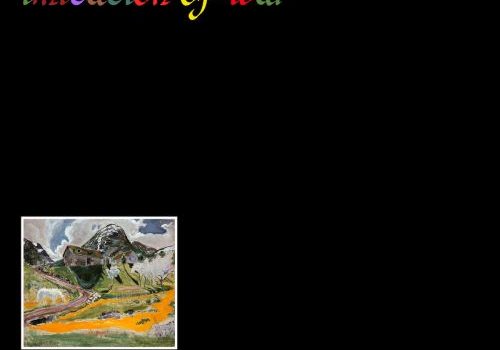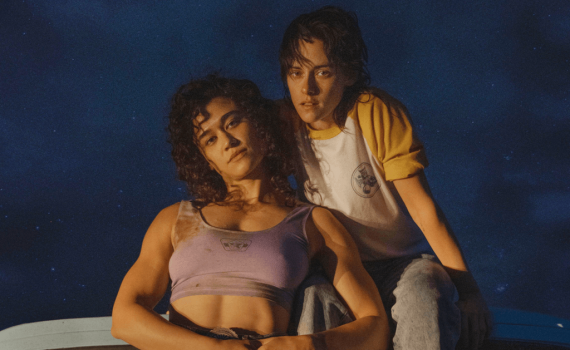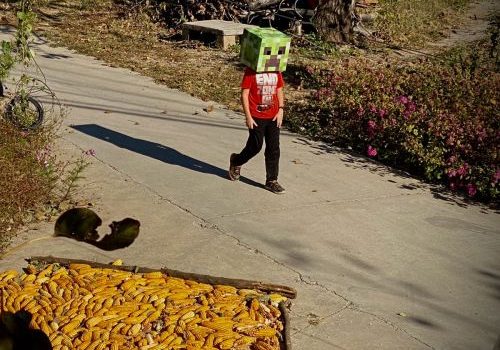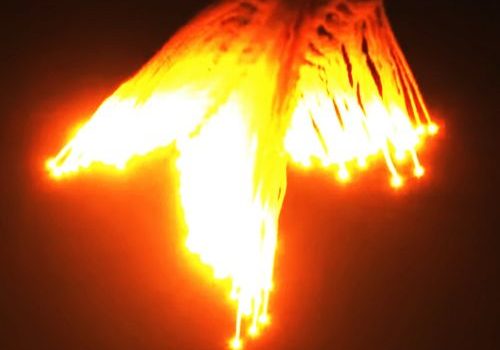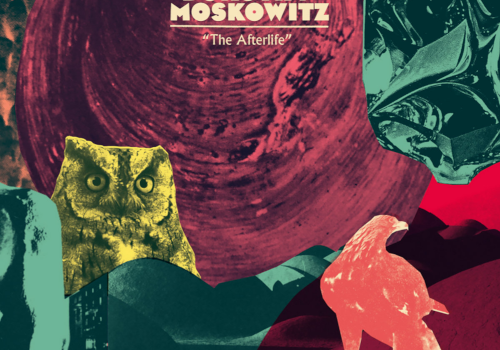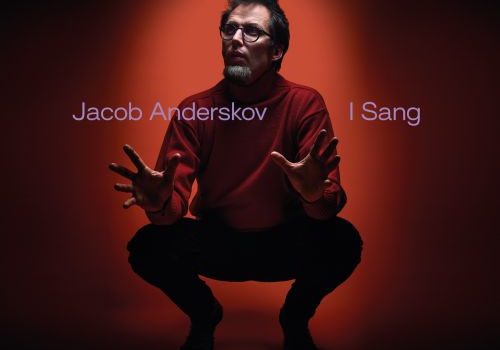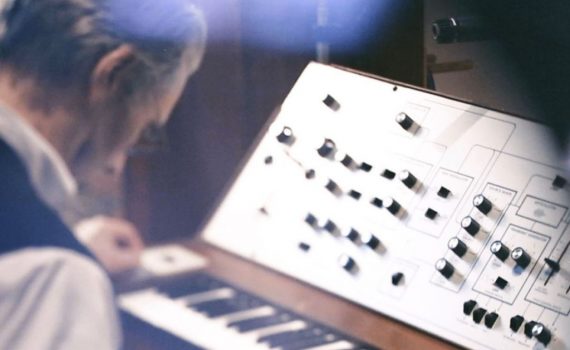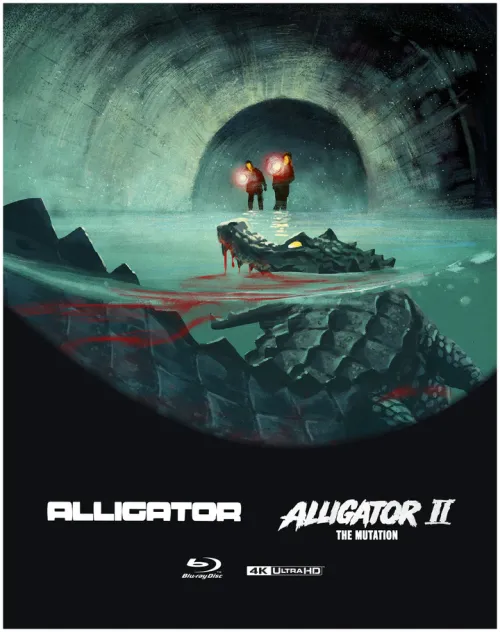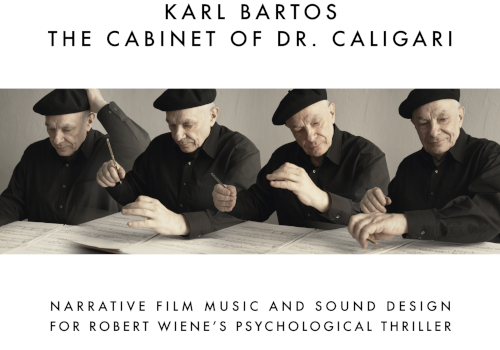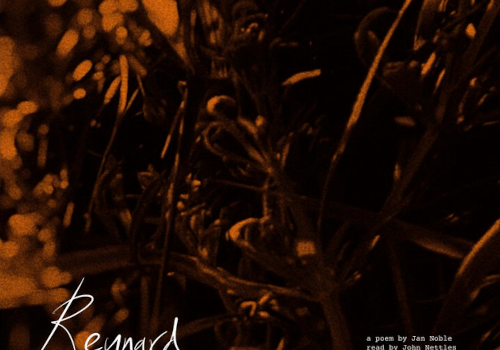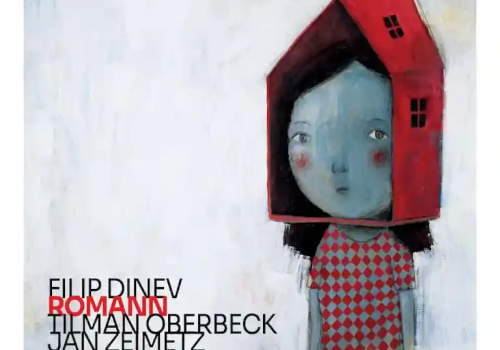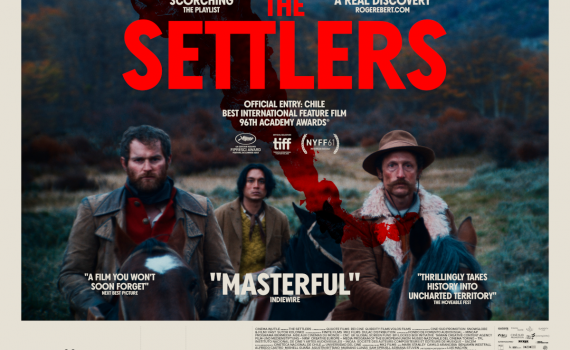Xmal Deutschland were born within the same German post-punk movement of the early '80s that produced such bands as Mania D, Malaria! , Abwarts and of course Einstürzende Neubauten. This was a fever pitch of creativity for young bands pushing boundaries within their musical styles with some, like Xmal, being swallowed up in the early goth scene in the UK along with lots of other bands that they bore no resemblance to musically.
Kayla Cohen's Itasca project has been running now for over ten years and has found a comfortable home of Paradise of Batchelors. This is the third album for them and with Robbie Coady of Wand behind the desk, and with assistance from Evan Backer and Evan Burrows as well as Gun Outfit bandmate Daniel Swire, a more guitar-centric sound has been uncovered and shown to the light.
It does well to initially evoke its era. The film’s primary tones are garish neon and sweat on skin, like a grimy San Junipero, and the set design and cinematography do well to create sense of a place where macho sleaze permeates every nook and cranny of the town. The problem is the characters that inhabit it feel too archetypal, too lacking in the eccentricities and unpredictabilities that would make them believable.
Not Applicable It is an intriguing combination; bass clarinet, electronics and percussion and one that renowned improvisers Lothar Ohlmeier, Isambard Khroustaliov and Rudi Fischerlehner utilise with equal parts aplomb and care, imbuing their sensitive imagery on In The Gloaming with space and time. The sounds initially are tentative, sussing out the spaces between one another then allowing them to merge when the time is right. The warm clarinet […]
What we don’t get, thankfully, is simply a The Body album with Dis Fig’s devastating wails atop their usual bludgeoning hellscapes. Instead, their two styles merge symbiotically, folding into each other in a totally seamless way. It makes sense. Both are interesting in creating blown-out, incinerated landscapes of noise, and walking the line between self-flagellation and catharsis.
Andy Watts Productions London Afrobeat Collective trumpeter Andy Watts clearly had some thinking to do over the pandemic period and chose that time to re-engage with his solo ideas. Inviting drummer Filippo Galli and utilising a bespoke cornet and a battery of effects pedals, he constructed a series of expansive rhythmic excursions that explore the outer limits of what can be accomplished with the instrument. Tying those to […]
Trailing on the shirt tails of last year's lathe-cut seven inch Afterlife EP comes a whole album's worth that doesn’t disappoint. Pleasantly parading around the head like the cover of an unread novel that fertilizes the imagination before you’ve even taken in a single word, The Afterlife’s treacly glow sticks to you in chorused warmth and glittery keystrokes, the occasional word-form whirling its architecture like an intoxicated hex.
Danish pianist Jacob Anderskov has many albums and collaborations under his belt; but on his latest, he has chosen, along with a small group of friends, to shine a light on an under-appreciated art form, that of højskolesangbogen. This is a form of nineteenth century folk music, incorporating hymns and singalongs that is very much part of Danish cultural identity. As with a lot of these forms of northern European folk music, they are tied to a certain time and Jacob has chosen this album to drag it into the twenty-first century, taking a detour through some twentieth century jazz motifs.
Following up a breakout film is obviously a difficult position, a constant questioning of whether to continue doing what made you a success in the first place, or to experiment, to use the newfound resources that success affords to embrace grander visions. It’s a position that director Junta Yamaguchi and screenwriter Makoto Ueda find themselves in, and one in which they succeed and fail in equal measure.
Fuzz Club Recorded over ten years ago and presumed lost in the digital æther, The Telescopes‘ sixteenth album is a game of two halves; one half recorded in Berlin at the Brian Jonestown Massacre studio and the other back in Leeds with the venerable Richard Formby. Co-opting London-based experimenters One Unique Signal, the LP seems to be the last before they signed to their current label Tapete and […]
Since the mid-1970s, Allen Ravenstine has experimented with and expanded on the uses of creative synthesis, perhaps most famously with Pere Ubu (and later Red Krayola), where he brought "unpredictable textures, effects and pulsating washes of sound" to the mix.
This re-release of cult classic Alligator finds it in as joyous as ever; a fun, knowing creature feature wrapped in a lovingly extensive package of remasters and extras from the ever-reliable 101 Films.
Although their collective nose was rather put out of joint by the release of Walls Have Ears – it was, after all, unsanctioned – contained within its fiery orange pumpkin cover, the album nevertheless remains an early jewel. Some inspired unofficial curation has caught ferocious live interpretations of an hour and a half worth’s of material culled from their first two albums and some which would appear for the first time the following year on Evol.
Bureau B Robert Wiene’s 1920 film of The Cabinet Of Dr Caligari is the cornerstone for all expressionist film-making and one of the jewels in the crown of Weimar Germany’s art. Filmed at what would become the UFA studio in Berlin, Dr Caligari was created on the large soundstages there using painted backdrops and even painted shadows. Its sets were skewed to give a dreamlike effect throughout the […]
Noble's Reynard is as wise, playful and tricksy as ever, but there's a noirish modernity to the proceedings, putting one in mind of TS Eliot or Iain Sinclair, with Reynard as the ultimate flaneur, shifting effortlessly from the green of the countryside to the greys and neons of the city, from the terror of the hunt to the tedium of the office.
On the strength of this, his sophomore album, he has left any pure jazz strains far behind and is instead forging ahead with his own recipe for the guitar trio, blending blues, Balkan and scratchy improv into a wholesome stew. Choosing the backing of bassist Tilman Oberbeck and percussionist Jan Zeimetz has imbued this album with a more exploratory sound compared to 2020's Szvetlo and you can feel his confidence rising. Although shorter in length, it feels more assured and more willing to take risks.
The film takes this classic western trope, establishing a small band of characters and setting them off on an expedition, but foregrounds the violence and cruelty at the heart of their quest, with every encounter they stumble upon drawing more and more out of them, and further brutality into the story.
Although a year in the making, only three days were spent in the studio recording Ville Blomster. That spontaneity, as well as Liv's manner of writing in her apartment with the windows open, allowing life to suffuse the compositions, comes through in the end result.

